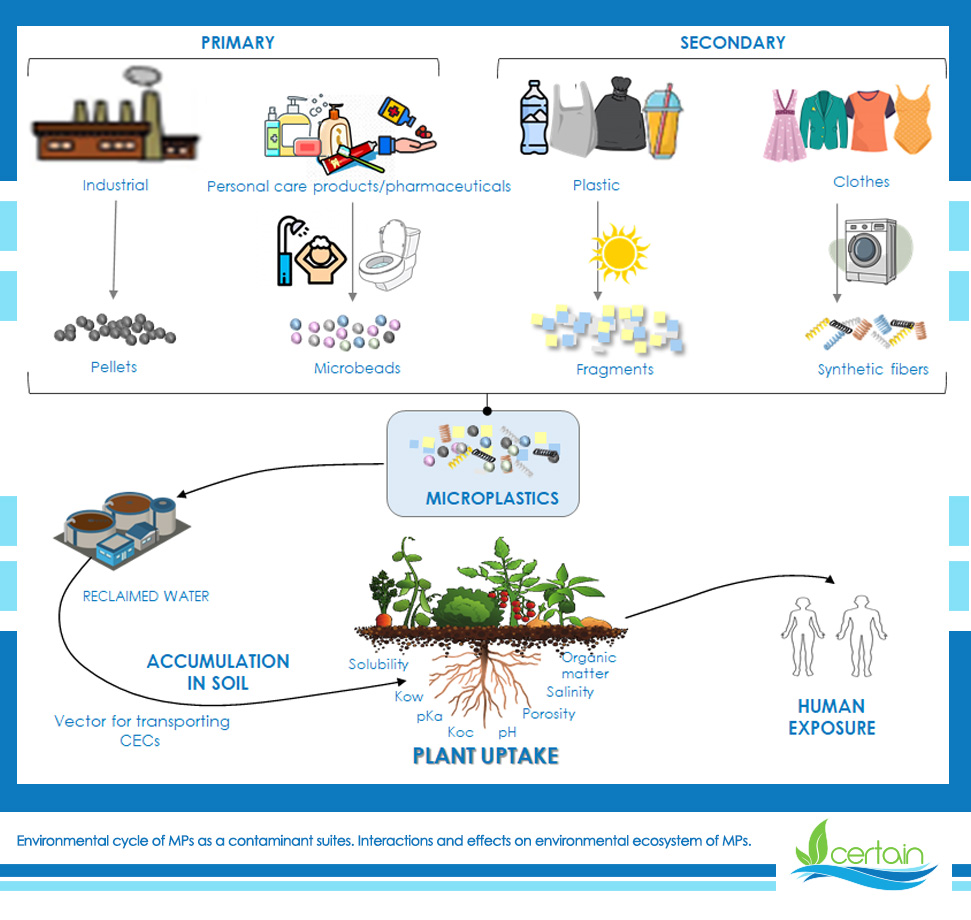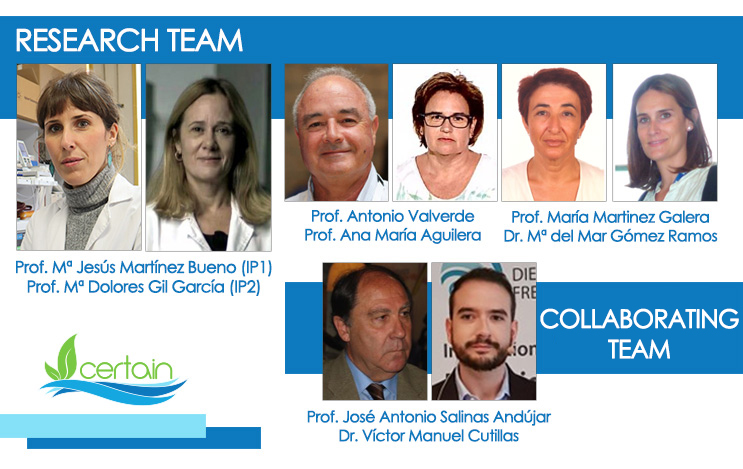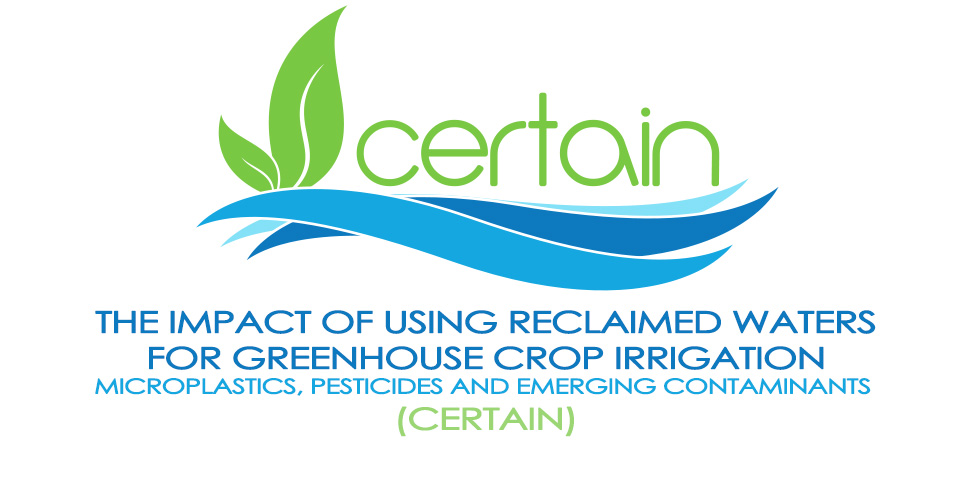THE IMPACT OF USING RECLAIMED WATERS FOR GREENHOUSE CROP IRRIGATION: MICROPLASTICS, PESTICIDES AND EMERGING CONTAMINANTS (CERTAIN)
Climate change, urban development, agriculture, together with droughts are major contributors to the increased pressure of water resources that seriously affects the availability/quality of freshwater. Water deficit in Spain is especially critical in the southern coastal areas, especially in the Mediterranean Sea and its islands, where the amount of annual rainfall is much lower than the average. The reclaimed water offers a very important alternative water supply option. In Spain, 71% of the regenerated water volume is used for irrigation of crops. The reclaimed water use is a sustainable alternative for employers and farmers in those areas where there are large commercial interests and which suffer from greater water scarcity, as is the case for the province of Almería. . .
However, the use of reclaimed water for irrigation of crops can constitute an important route for the introduction of organic contaminants of emerging concern (CECs) in agricultural production and their subsequent entry into the food chain. Scientific knowledge and understanding on potential human and ecosystem health risks posed by the use of reclaimed water for crop irrigation is still very scarce. .
Most emerging contaminants, such as pharmaceutical and personal care products (PPCPs), are not regulated in environmental, water quality and wastewater reuse regulations. Furtheremore, the increasing production of plastics in recent years has led to severe plastic pollution in the environment. Besides, the current outbreak of COVID-19 pandemic has resulted in a dramatic increase in personal protective equipment in which rubbers and plastics are two of the major components. This will lead to a severer plastic pollution in the environment. Discarded plastic wastes and small-sized particles called “microplastics” (MPs) are released directly or indirectly into the environment in different ways. MPs represent a current public health concern since they can be accumulated in plant tissues and therefore transferred to the consumer through diet. However, there is a large gap of knowledge on the extent to which terrestrial ecosystems and agro-food producction are affected by MPs, to date. The occurrence of MPs in agro-environment remains largely unexplored. Hence, there is an urgent need to strengthen scientific knowledge to monitor the presence of MPs and CECs in reclaimed waters but also their accumulation in the different environmental compartments as well as in crops irrigated with this water, to assess their potential human health and environmental risks.
The project aims to advance scientific knowledge about the pathway and accumulation of contaminants of emerging concern, including MPs, in horticultural products produced in greenhouses with reclaimed water, through field trials, as well as generating useful information regarding the water regeneration technologies, the impact and risk derived from the consumption of said products.

Main Objective
The general objective of the proposal is to carry out an integrated evaluation in short and long term of the benefits and drawbacks derived from the use of reclaimed wastewater for agricultural irrigation that allow safe use. An analytical methodology based on the chemical analysis of water, plants and soil will be applied, in order to evaluate the adsorption, translocation, accumulation and transformation of CECs and MPs present in reclaimed waters used for irrigation of vegetables/fruits grown under plastic.

Specific objectives
- To evaluate the presence of anthropogenic contaminants (MPs, pesticides y PPCPs) and ionic compounds (NO3–/NO2–) in reclaimed water obtained from an urban treatment plant used to crops irrigation.
- To determine the adsorption, uptake and accumulation of anthropogenic organic contaminants (MPs, pesticides y PPCPs) and ionic compounds (NO3–/NO2–) in soil and crops irrigated with reclaimed water in greenhouse.
- To develop a pilot survey monitoring of MPs in order to evaluate their occurrence due to solarization/degradation of plastics in the greenhouse-atmosphere as well to provide an evaluation of the agro-food quality and to assess their potential human health risks.
- To develop a theoretical adsorption/absorption model that allows predicting the fate of CECs and MPs in the soil and vegetal tissue based on their physical-chemical properties.
- To identify those substances that due to their physical-chemical properties may pose a greater risk to health derived from the consumption of the edible part of the plant and/or the environmental impact.




